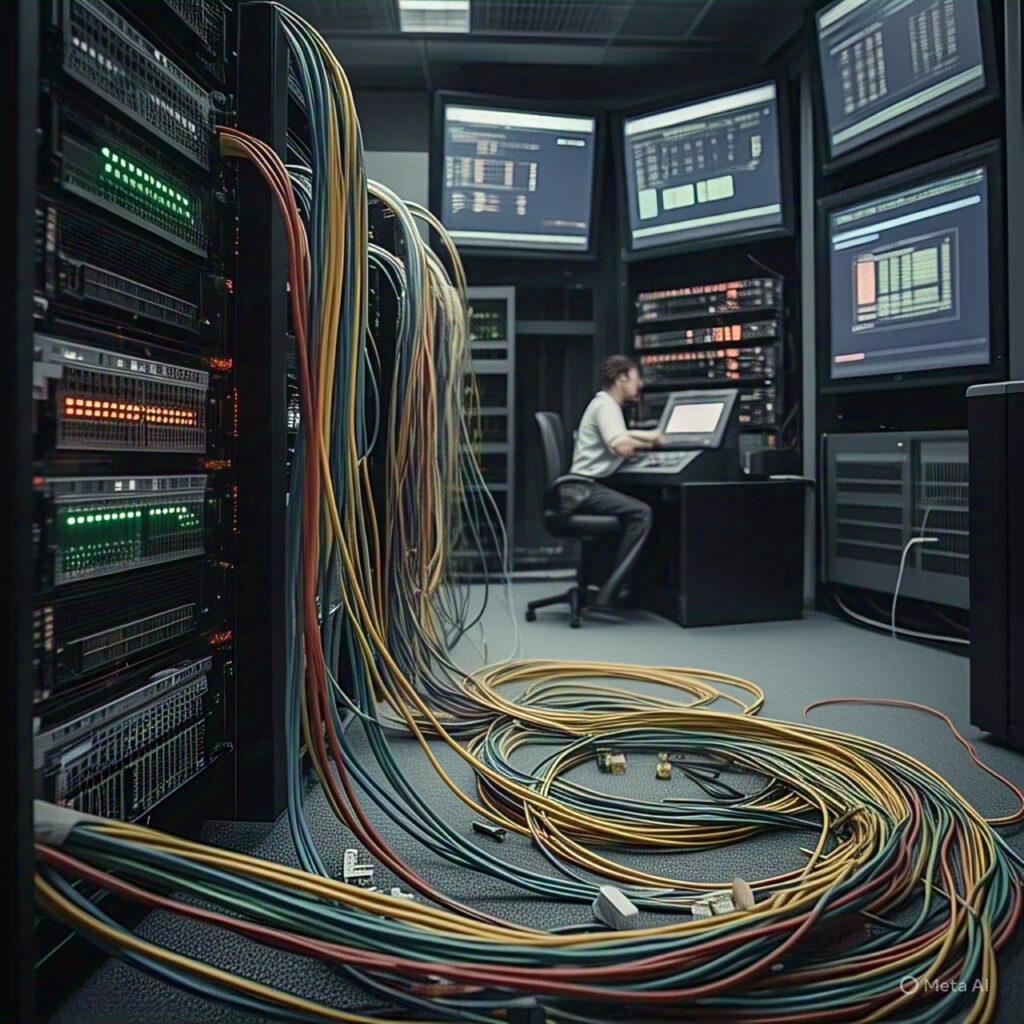Quantum Internet Is Closer Than You Think, & It’s Using the Same Cables as Netflix
Introduction
Imagine a world where your internet connection doesn’t just let you stream Netflix in 4K, but also powers futuristic technologies that can solve complex problems, like predicting the weather or designing life-saving medicines. Sounds like something out of a sci-fi movie, right? But what if I told you that the quantum internet is closer to reality than you might think—and it’s running on the same fiber-optic cables that deliver your favorite Netflix shows?
Have you ever wondered if the future of the internet is as far away as we think?
Well, it might be closer than you imagine. After all, the building blocks of the quantum network are already in place, and they’re sharing the same infrastructure that’s already connected millions of homes to the digital world. Intrigued? Let’s dive into how the quantum internet is coming to life and how it’s using the cables that connect us to Netflix today.

What Is the Quantum Internet?
The quantum internet is an advanced version of the internet that exploits the principles of quantum mechanics. You may be familiar with the basic concept of the internet: it uses bits – the basic units of data that are either 0 or 1. But this is where quantum networks get interesting.
Instead of regular bits, quantum communication uses quantum bits, or qubits. Unlike regular bits, qubits can exist in multiple states at the same time due to a quantum property called superposition. Another amazing property is entanglement, where two particles become so deeply connected that the state of one particle can instantly affect the state of the other, regardless of the distance between them.
This superposition and entanglement make quantum communication incredibly powerful. It could theoretically enable exponentially faster processing, more secure data transmission, and open doors to groundbreaking applications in fields like artificial intelligence, medicine, and cybersecurity.
But here’s the key point: The infrastructure we use to connect to the internet today—fiber-optic cables—is the same technology that will carry quantum data. In other words, the very same fiber cables that power Netflix could soon be used to send quantum data!

How Does Quantum Internet Use Netflix’s Fiber-Optic Cables?
Fiber-optic cables are already the backbone of our modern internet. These thin strands of glass or plastic transmit data as pulses of light, allowing information to travel across vast distances with minimal loss. They’re fast, reliable, and have enough capacity to handle the growing demands of our digital world.

Now, quantum internet builds on this infrastructure by using quantum communication. While conventional data flows through fiber-optic cables as light pulses, quantum data is more delicate—it relies on the behavior of individual particles like photons. To send quantum information through these cables, researchers have to modify the signals to make them less prone to interference.
This is where things get tricky. Quantum signals are much more fragile than traditional data, and they’re sensitive to noise and environmental changes. To make quantum internet work on today’s fiber-optic networks, scientists are working on developing ways to boost the stability of these quantum signals as they travel.
But here’s the exciting part: With a bit of fine-tuning, the same fiber-optic cables that power Netflix, social media, video calls, and online shopping can support quantum communication. The challenge lies in modifying the infrastructure and technology to make quantum data transmission reliable enough for everyday use.
The Race to Quantum Internet: Who’s Leading the Charge?
As you might expect, countries and tech giants around the world are racing to create and deploy quantum internet. The United States, China, and the European Union have all invested heavily in quantum research. Major tech companies, including IBM, Google, and Microsoft, are also pushing forward with quantum computing and communication projects.
In fact, some early-stage quantum internet prototypes are already being tested. These early networks are being used for specific applications, such as secure communication in military and financial industries. However, these prototypes are just the beginning. In the future, quantum internet could be a global network, connecting industries and individuals in ways we can’t even fully comprehend yet.
How Will the Quantum Internet Impact You?
While the quantum network may sound like something far off in the future, it’s already starting to take shape. So, how will it affect you? Here’s what we can expect:
1. Ultra-Secure Communication
Quantum encryption uses the principles of quantum mechanics to protect data, making it virtually impossible for hackers to access. This means that in the future, your personal data could be safer than ever before.
2. Lightning-Fast Internet
In a quantum world, internet speeds could increase by orders of magnitude. Imagine downloading a full movie in seconds, or streaming ultra-high-definition video without a single buffering pause. Quantum internet could offer speeds that make today’s fiber-optic networks seem sluggish.
3. Revolutionizing Industries
From drug discovery to weather forecasting, quantum computers will have the power to process data at unimaginable speeds. This could lead to groundbreaking advancements in fields such as healthcare, artificial intelligence, and climate science.
Pros & Cons of Quantum Internet
| Pros | Cons |
|---|---|
| Speed: Quantum internet could deliver incredibly fast data speeds. | Cost: Developing quantum networks and upgrading infrastructure could be expensive. |
| Security: Quantum encryption offers near-unbreakable protection for sensitive data. | Limited Availability: Quantum internet is still in its early stages, so widespread access will take time. |
| Innovation: Quantum computing could transform industries like healthcare, AI, and finance. | Technical Challenges: Quantum data is fragile and requires significant modifications to existing fiber-optic infrastructure. |
FAQs
-
What is the quantum internet?
-
The quantum internet uses quantum mechanics to transmit information in the form of quantum bits (qubits), enabling faster speeds and higher security than traditional internet.
-
-
Will the quantum internet be available to consumers?
-
Initially, quantum internet will be used for specialized applications in fields like finance and healthcare. However, it could become available to the public over time.
-
-
How does quantum internet use fiber-optic cables?
-
Quantum data can travel through the same fiber-optic cables used for traditional internet. Researchers are working on adapting the cables to support quantum signals.
-
-
What is quantum encryption?
-
Quantum encryption uses the principles of quantum mechanics to secure data, making it extremely difficult to hack.
-
-
When will the quantum internet be available?
-
While quantum internet is still in development, researchers are making significant progress, and it could become more widely available in the next decade.
-
Conclusion
The quantum internet is no longer just a concept for the distant future. It’s on the verge of becoming a reality, and the technology behind it is already using the same fiber-optic cables that power Netflix today. While there are still challenges to overcome, such as adapting infrastructure and stabilizing quantum data transmission, the potential benefits are enormous. Faster speeds, enhanced security, and groundbreaking applications could revolutionize industries and change how we live and work.
Are you excited about the possibilities of quantum internet, or do you think it’s too far off? Share your thoughts with us in the comments below!
Let me know if you need further adjustments or additional sections!

